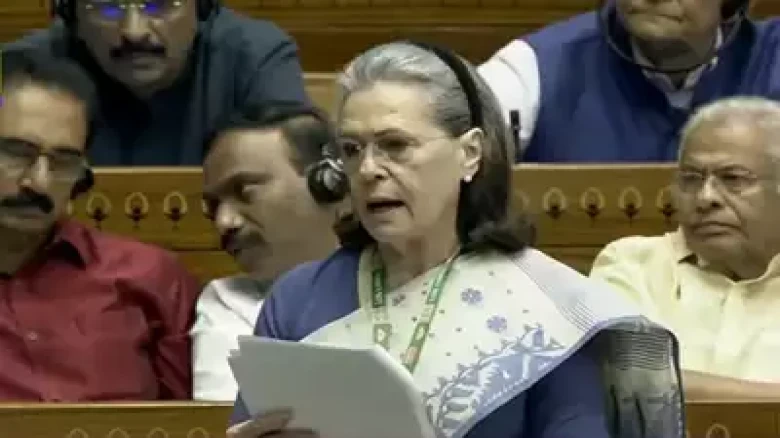Article

Congress Parliamentary Party Chief Sonia Gandhi on Wednesday extended her support to the Women's Reservation Bill as she opened the...
Digital Desk: Congress Parliamentary Party Chief Sonia Gandhi on Wednesday extended her support to the Women's Reservation Bill as she opened the debate from the Congress side in the Lok Sabha. She not only lauded the bill as the fulfillment of a dream seen by her late husband, Rajiv Gandhi but also questioned the long delay in its implementation.
The bill, known as the Narishakti Vandan Adhiniyam, aims to provide 33 percent reservation for women in both the Lok Sabha and state assemblies for a duration of 15 years. Furthermore, the proposed legislation allocates a separate quota for women from the Scheduled Caste and Scheduled Tribe communities within the reserved seats.
Prime Minister Narendra Modi, who advocated strongly for the bill's introduction in the Lok Sabha, emphasized the government's commitment to integrating more women into the nation's development process. He stated, "For that work of giving power to women and for many such noble works, God has chosen me. Once again, our government has taken a step in this direction."
While the Bharatiya Janata Party (BJP) hailed the bill as historic and a testament to Prime Minister Modi's visionary leadership, several opposition parties, including the Congress, dismissed it as an election "jumla" or empty promise.
Despite the enthusiasm surrounding the bill, its implementation may still be some time away. It is unlikely to take effect in time for the 2024 Lok Sabha elections, as it requires a delimitation exercise to be completed before reservations can be enforced.
The Constitution (One Hundred and Twenty-Eighth Amendment) Bill, 2023, was listed for introduction in the Lower House through a supplementary list of business. The bill's provision for "as nearly as may be, one-third of the total number of seats to be filled by direct election" will only be put into practice after a comprehensive delimitation exercise, and it will remain in effect for 15 years. Furthermore, seats reserved for women will be rotated following each subsequent delimitation exercise, as per the bill's provisions.
The Women's Reservation Bill's debate in the Lok Sabha marks a significant step towards gender equality in India's political landscape, although the road to its full implementation remains subject to procedural hurdles and political discussions.
Leave A Comment